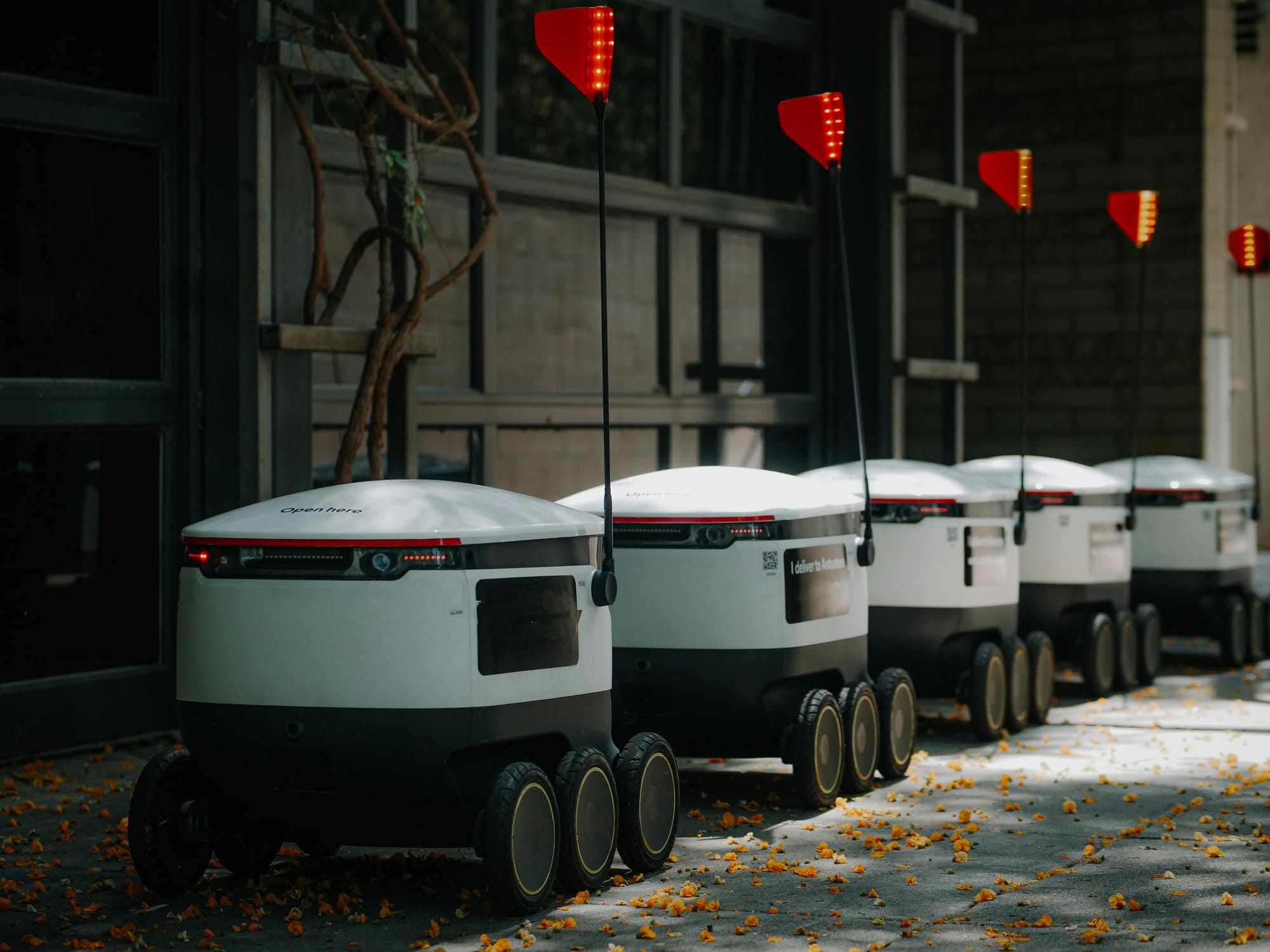Logistics
Smart Mobility and Map Tracking: Redefining Logistics for the Future

In the modern world, map tracking is more important than ever. Delivering goods or managing supply chain map tracking will boost efficiency, security, and customer satisfaction. GPS tracking became the must-have tool to avoid delays, streamline operations, and stay accountable. Real-time tracking is a backbone for transportation, ensuring timely product and service delivery and increasing customer satisfaction.
Implementing map tracking significantly benefits startups and helps establish a logistics brand.

Our case study: Fleet Management System (FMS) implementation.
ElifTech successfully delivered a map tracking service for a company specializing in the short - and long-term rental of industrial equipment. The client required an enhanced Fleet Management System (FMS) to efficiently monitor their vehicles across Europe and provide real-time data to optimize fleet and workforce utilization. Additionally, the solution needed to calculate fees based on vehicle type and route distance automatically. Key objectives included improving system performance, implementing a multi-tenant architecture to support hosted and on-premise deployments, and enabling multilingual functionality.
ElifTech took into account the specific requirements for the project and decided to step away from the usual strategies. We used PostGIS and PostgreSQL to develop real-time solutions that accept tracking location statuses for all assets on one dashboard. It includes full-fleet metrics, maintenance scheduling, instant alerts, and reports.
ElifTech's solution comprised the development of a dashboard, security modules, geofence, alarm notification, and internationalization mechanism. The company put in place a routing module that makes fee computation possible. ElifTech switched from client-side paging to server-side paging to improve performance.
ElifTech decreased the quantity of database queries using API optimization, and we optimized the client by lowering the quantity of API queries. The multi-tenant architecture supported two deployment types — hosted and on-premise apps.
The deployment of MapTrack reduced operating expenses and improved business operations efficiency. The business now manages its resources more efficiently thanks to an intelligent dashboard and simple access to real-time analytics. Fuel consumption was reduced, fleet productivity was increased, routes were optimized, and unauthorized vehicle usage was decreased thanks to the solution.
Key features were delivered:
- Real-time vehicle location tracking;
- Fleet's route optimization and logistics algorithms;
- Automated reporting tools;
- Online dashboard and analytics;
- Smart repair alert system;
- Calculation of fees based on vehicle type and route distance.
Smart Mobility in Logistics: Driving Efficiency and Sustainability
Automation, Digitization, and Connectivity are vertical agnostic mega-trends that affect mobility and, more specifically, logistics. Eliftech partnered with K2-Technology, a leading consulting company focusing on product strategy and business development, to shed some light on Smart Mobility in general and how it affects logistics.
According to Assaf Shechner, the owner of K2-Technology, the term "Smart Mobility" usually refers to solutions that consider decision-making, planning, and execution and are flexible enough to adapt constantly to different mobility scenarios.
For example, when dealing with Logistics Eliftech, the success factors in this domain - time and cost of delivery - will be considered when establishing a solution, which are two parameters that could be changed constantly for the same place.
For a fleet manager, planning is key to fully utilizing resources and optimizing revenues vs. costs. Take Route optimization, for example. It is much more than dealing with traffic congestion only. It is a holistic view of who the driver is, which delivery truck will be used, and even which goods to deliver. Driver behavior will result directly in fuel consumption, which EV vehicle will be used will impact the distance to drive, and whether the goods will be picked up from a smart warehouse will impact the time in the depot.
So, an entire platform, connected to the vehicle from one side and to other systems such as weather databases, traffic management systems, and others, will provide a full view and improve logistics companies' operations management.
Such platforms, which combine Edge / IOT devices and a centralized server, can integrate with different tools that were siloed until today; therefore, the entire process could have been more timely and suboptimal.
And this is not only a matter of operational efficiency. It is also a matter of market branding and positioning.
Using smart mobility methods will directly impact factors that customers value and consider when choosing one logistics company over another. Time, for example, is a key driver of customer satisfaction regarding delivery companies. It determines how long it will take to deliver a package and how accurate the delivery time declaration is.
So, a company that uses it from a marketing perspective will be able to position itself as innovative and advanced and use it as a unique selling proposition compared to the competition.
ElifTech and K2-Technology are one-stop shops for dealing with such tasks. The combination of domain experts in smart mobility applications and a unique and agile SW development firm that has already delivered successful IOT-based solutions is a key factor in bridging the gap between a company's unmet need and a winning solution.
2024 Recap and Future Trends in Logistics and Smart Mobility
In 2024, the logistics and smart mobility sectors experienced significant changes and transformations that reshaped all industries and gave new directions for development.
1. Automation and robotics aren't futuristic concepts anymore. Companies like Amazon have successfully implemented robots and AI systems into their work. For instance, in Amazon's new facility in Shreveport, Louisiana, robots like Proteus help human workers, streamlining operations and reducing delivery times.
2. Green logistics and eco-transportation. In India, GreenLine Mobility Solutions is promoting liquefied natural gas tracks for companies like Flipkart to reduce emissions and promote sustainability.
3. Self-driving vehicles are in progress. For example, driverless buses are being tested in the UK. Projects like StreetCAV in Milton Keynes are testing autonomous shuttles and plan to provide them in 2025, which indicates moving toward smart mobility solutions.
4. The trends in 2024 are transparency and data accuracy, and more companies have started to implement digital technologies such as blockchain, artificial intelligence, and the Internet of Things (IoT) to improve supply chain visibility and efficiency.
The speed of development of digital technologies in logistics is mind-boggling. In 2025, companies can expect even more technologies and changes to increase efficiency, reduce costs, and improve services.
The integration of AI into vehicles is revolutionizing all logistics fields. What do we need to wait for in 2025?
- Improved AI services in self-driving cars that allow making real-time decisions and navigation.
- AI systems that analyze traffic and optimize flow, reduce congestion, and improve overall efficiency.
- AI-driven analytics and services to monitor vehicle performance and driver behavior.
- New navigation systems to predict traffic conditions and suggest alternative routes.
- Advanced driver-assistance systems that dedicate potential dangers and help to avoid them.
- Driverless technologies advancements.
- AI systems that analyze various factors such as traffic, weather, road conditions, etc.
Conclusions
2024 was fruitful and transformative for logistics, especially for smart mobility direction. Real cases like the FMS solutions that ElifTech provided show how map tracking and automation can optimize operations, reduce costs, and enhance fleet productivity.
Implementing smart mobility into a company's work reduces costs or improves efficiency. By showcasing innovation and customer-centric solutions, it builds a strong market position. Emerging technologies empower startups by providing scalability, flexibility, and efficiency in a competitive landscape.
The year 2025 promises to be even more efficient and technologically advanced. Autonomous vehicles, route optimization using artificial intelligence, and the expansion of electric vehicle fleets will no longer be innovations but will become integral to every logistics company.
